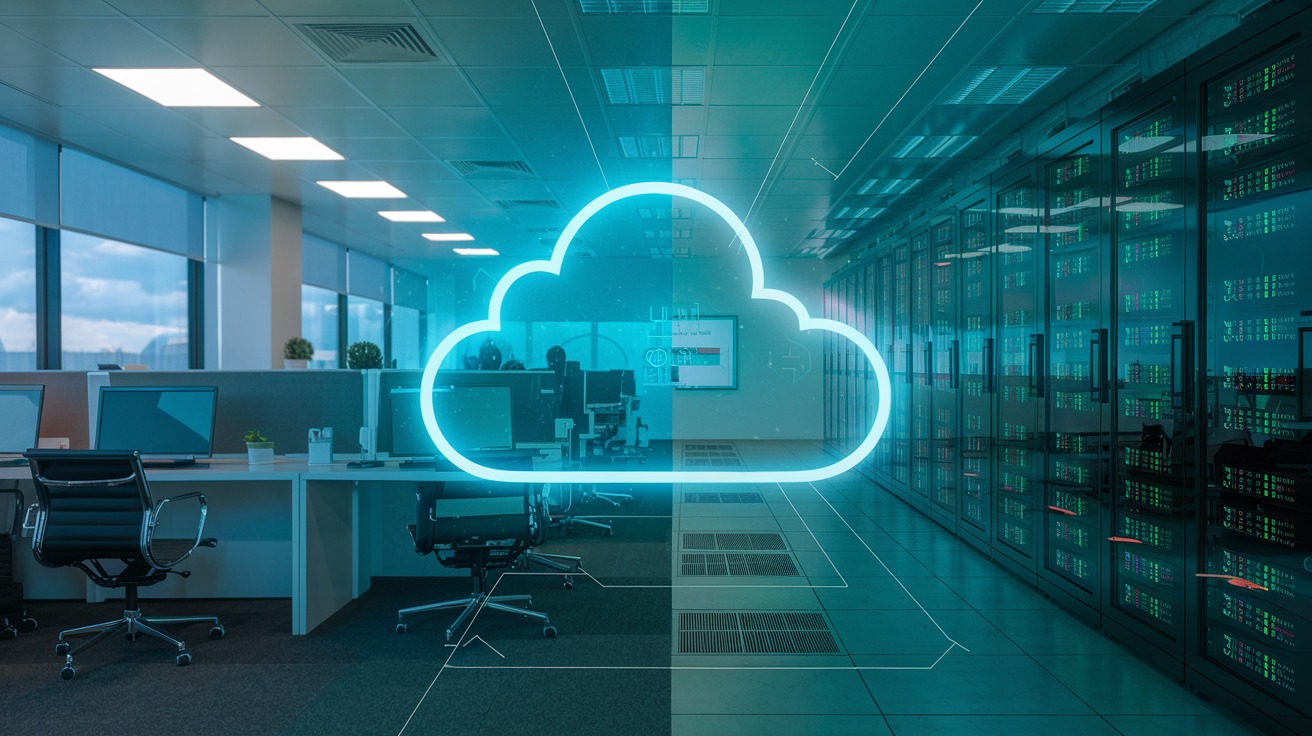by
DE Web Works
| Mar 15, 2025

The Big IT Decision for Accountants 🏛️
If you’re running an accounting firm, technology is the backbone of your business. From preparing tax returns in UltraTax CS to managing payroll in Accounting CS, your IT infrastructure determines how efficiently your firm operates.
But when it comes to data storage and security, one question looms large: Should you host your data in the cloud or keep everything on-premise?
This choice isn’t just about cost—it impacts security, compliance, scalability, and even your team’s productivity. Let’s break it all down.
What is Cloud Computing for Accountants? ☁️
Cloud computing means your data, software, and applications are hosted on remote servers, accessible via the internet. Instead of managing your own IT hardware, a third-party provider (such as Thomson Reuters Virtual Office CS, Amazon Web Services, or another specialized cloud provider) takes care of everything.
Benefits of Cloud Computing for Accounting Firms ✅
✅ Seamless Access to CS Professional Suite – Use UltraTax CS, Accounting CS, and FileCabinet CS from anywhere.
✅ Remote Work & Collaboration – Your team can securely access client files from any location.
✅ Scalability – Easily add users, storage, or computing power as your firm grows.
✅ Automatic Updates & Maintenance – Your cloud provider handles software updates, security patches, and backups.
✅ Reduced IT Overhead – No need for in-house server maintenance or costly hardware upgrades.
✅ Enhanced Security & Compliance – Leading cloud providers offer enterprise-grade encryption, backups, and disaster recovery.
Drawbacks of Cloud Computing for Accountants ⚠️
⚠️ Subscription Costs – While cloud services reduce upfront expenses, ongoing fees can add up.
⚠️ Internet Dependency – If your internet goes down, so does access to CS Professional Suite and other tools.
⚠️ Data Privacy Concerns – Some firms prefer to have full control over their data rather than trusting a third-party provider.
What is On-Premise IT for Accountants? 🖥️
On-premise IT means your firm stores data and runs CS Professional Suite applications on physical servers located in your office. You’re responsible for managing security, backups, and software updates.
Benefits of On-Premise IT for Accounting Firms ✅
✅ Full Control Over Data – Your firm decides where and how sensitive client data is stored.
✅ No Internet Dependency – Work uninterrupted even if your internet goes down.
✅ One-Time Investment – Unlike cloud subscriptions, you pay upfront for servers and avoid recurring fees.
✅ Custom Security Measures – Implement firewalls, encryption, and access controls tailored to your firm’s needs.
Drawbacks of On-Premise IT for Accountants ⚠️
⚠️ High Upfront Costs – Servers, networking equipment, and security measures require a large initial investment.
⚠️ Maintenance & IT Management – Your firm is responsible for updates, backups, and troubleshooting.
⚠️ Limited Scalability – Expanding storage or upgrading software often requires buying new equipment.
⚠️ Security Risks – Without a dedicated IT team, on-premise servers can be vulnerable to cyberattacks and data breaches.
Cloud vs. On-Premise: Which is Right for Your Accounting Firm? 🏆
Go Cloud If:
✔️ You want remote access to UltraTax CS, Accounting CS, and other CS Professional Suite tools.
✔️ You prefer predictable monthly costs rather than large upfront investments.
✔️ You don’t have an in-house IT team to manage infrastructure.
✔️ You need seamless integration with Thomson Reuters Virtual Office CS or other cloud solutions.
Go On-Premise If:
✔️ You handle highly sensitive financial data and need full control over security and storage.
✔️ Your internet connection is unreliable, and you can’t afford downtime.
✔️ You’re comfortable managing your own IT infrastructure.
✔️ You prefer a one-time investment rather than ongoing subscription fees.
Final Verdict: The Hybrid Approach? 🔄
For many accounting firms, a hybrid IT approach works best. This means storing some data on-premise (such as highly confidential client files) while using cloud-based tools for day-to-day operations. A managed IT service provider can help create a custom IT strategy that balances security, cost, and convenience.
💡 Need help deciding? Our IT experts can assess your firm’s needs and recommend the best solution. Contact us today to discuss your accounting firm’s IT strategy!